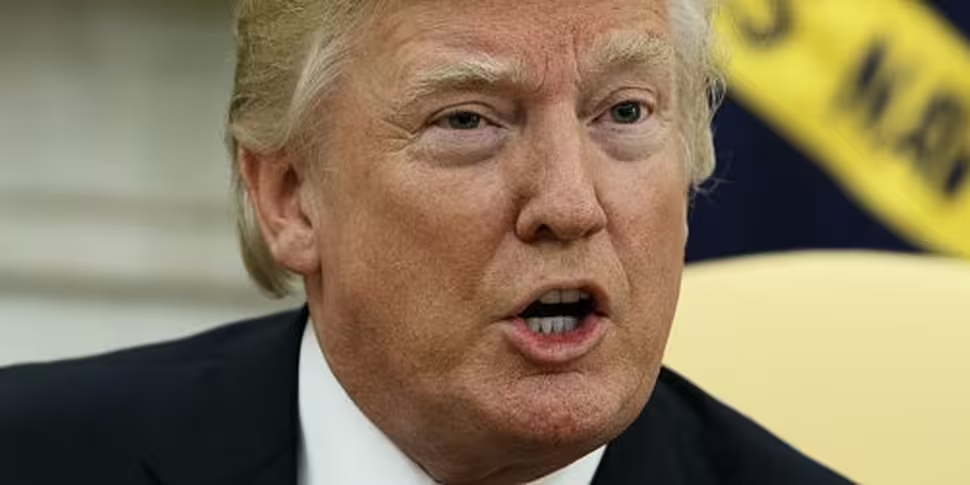Updated 19.20
President Trump has refused to recertify the Iran nuclear deal, calling it one of the "worst and one-sided" agreements America has ever entered in to.
The landmark Obama-brokered deal limited Iran's nuclear capability in return for the lifting of some sanctions.
Mr Trump hit out at Iran's "rogue regime" in a speech at the White House, in which he also imposed extra sanctions on the country's Islamic Revolutionary Guard.
He said Iran had "spread death, destruction and chaos all around the world".
However, the US President's decision does not mean the deal will be scrapped immediately: it will instead be forwarded to the US Congress.
It will then have 60 days to decide whether to reimpose sanctions or modify the laws on America's involvement in the pact, known as the Joint Comprehensive Plan of Action (JCPoA).
He also used his speech to criticise Iran's non-nuclear activities, such as its ballistic missile programme, and support for Syria's President Assad and Lebanon's Hezbollah.
British Prime Minister Theresa May, German Chancellor Angela Merkel and French President Emmanuel Macron, meanwhile, have issued a joint statement backing the Iran deal, saying they "stand committed to the JCPoA and its full implementation by all sides".

File photo. Picture by: Kay Nietfeld/DPA/PA Images
The European leaders say: "The International Atomic Energy Agency has repeatedly confirmed Iran’s compliance with the JCPoA through its long-term verification and monitoring programme.
"Therefore, we encourage the US Administration and Congress to consider the implications to the security of the US and its allies before taking any steps that might undermine the JCPoA, such as re-imposing sanctions on Iran lifted under the agreement."
They add that they "share concerns about Iran’s ballistic missile programme", but stress they are focusing on engaging Iran in "constructive dialogue".
The statement adds: "Our governments are committed to ensuring the JCPoA is maintained. Independent of the JCPoA, we need to make sure that our collective wider concerns are being addressed."
Iran deal
The original sanctions had included a freezing of financial assets, weapons sales and crude oil exports.
Under the restrictions, Iran lost more than a hundred billion dollars in oil revenue between 2012 and 2016 alone.
On implementation day in January 2016, the White House said Iran had completed all the steps needed to ensure its nuclear programme was exclusively peaceful.
This included shipping 25,000 pounds of enriched uranium out of the country, and the dismantling and removing of two-thirds of its centrifuges, used to enrich uranium.
President Trump had a Sunday deadline to notify Congress on whether Iran is complying with the deal and if it is still a national security priority.
Senator Bob Corker, chairman of the Senate Foreign Relations Committee, said he expects to bring in new legislation in the next two weeks to "address flaws" in the pact.
Russia said that if the US pulled out entirely, it would damage the current atmosphere of security, stability and non-proliferation around the world.
Russia, along with Britain, France, Germany, China and the European Union are also signatories to the deal.
Donald Trump recently told the UN General Assembly the deal was an "embarrassment" to America and "one of the worst and most one-sided transactions the United States has ever entered into".









